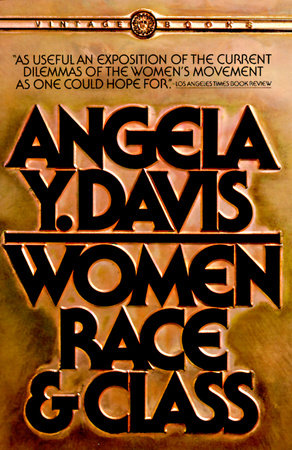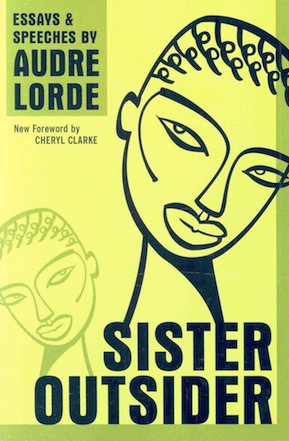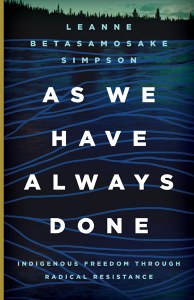ZINES
Printable B/W Zines:
Printer set up: Double-sided with short-edge binding (layout)
COVID-19 MUTUAL AID
Culled from our “Care in the Time of Coronavirus” zine and other sources, here are some mutual aid resources for support and to care for our communities during the COVID-19 pandemic:
Coronavirus Resource Kit (shared by Mon Mohapatra, No New Jails)
Cloud 9 Mutual Aid (shared by BUFU)
COVID-19 Mutual Aid & Advocacy Resources
Sex Worker Harm Reduction Resources (shared by COYOTE RI)
DONATE/SHARE RESOURCES:
Here’s How You Can Help Sex Workers During the COVID-19 Outbreak (shared by Rewire.News)
COVID-19 Sex Worker Aid (shared by JaneRaider)
Red Canary Song
Sige! Mutual Aid to Support LGBTQIA Filipinos
Survival Funds for Undocumented Bangladeshis in Brooklyn
Sakhi for South Asian Women, addressing gender-based violence within the South Asian diaspora
Queens Mutual Aid Network Relief Fund
Bronx Mutual Aid Network Relief Fund
South Brooklyn Mutual Aid Fund
National Domestic Workers Alliance
Food Bank 4 NYC
SWOP Behind Bars
Brooklyn Community Bail Fund
National Bail Out
Queer Detainee Empowerment Project
Black Trans Solidarity Fund
NYC Street Vendors
#SaveNYCChinatown: Dumplings Against Hate
Abolition Action Grocery Fund
@bkservicecoalition (on Venmo)
DOMESTIC VIOLENCE RESOURCES:
The National Domestic Violence Hotline is 1-800-799-7233 or text LOVEIS to 22522 if you are unable to speak safely.
Sakhi for South Asian Women’s helpline continues to operate as usual at 1-212-868-6741.
Resources:
We are assembling an Asian American Feminist resource guide and we would love to draw on the strength of our community to keep adding readings you think are important for the Asian American Feminist movement. If you would like to add a resource to the guide, please submit it via this Google form!
READING LISTS
Black + Asian American Feminist Solidarities
A Reading List with Black Women Radicals
FEMINIST THOUGHT + PRACTICE
Building on legacies of feminist of color scholarship, Ahmed shows how feminist theory is generated from everyday life and the ordinary experiences of being a feminist at home and at work. She offers personal meditations on how feminists learn about worlds from their efforts to transform them.
A world dominated by America and driven by cheap oil, easy credit, and conspicuous consumption is unraveling before our eyes. In this powerful, deeply humanistic book, Boggs shrewdly assesses the current crisis—political, economical, and environmental—and shows how to create the radical social change we need to confront new realities.
An exploration of issues of race, gender and sexuality within Asian American literature, with an emphasis on how these ideas are treated in writings authored by Asian American women.
Collins provides an interpretive framework for the work of such prominent Black feminist thinkers as Angela Davis, bell hooks, Alice Walker, and Audre Lorde. Drawing from fiction, poetry, music and oral history, the result is a superbly crafted and revolutionary book that provided the first synthetic overview of Black feminist thought and its canon.
Reflecting on the importance of black feminism, intersectionality, and prison abolitionism for today's struggles, Davis discusses the legacies of previous liberation struggles, such as the Black Freedom Movement to the South African anti-Apartheid movement. She highlights connections between struggles, challenging us to imagine and build the movement for human liberation.
A powerful study of the women's liberation movement in the United States, from abolitionist days to the present, that demonstrates how it has always been hampered by the racist and classist biases of its leaders.
Examining the role of the state in perpetuating ongoing racism against South Asian, Arab, Muslim, and Sikh people, Iyer catalogs recent racial flashpoints, from the 2012 massacre at the Sikh gurdwara in Oak Creek, Wisconsin, to the violent opposition to the Islamic Center of Murfreesboro, Tennessee, and to the Park 51 Community Center in Lower Manhattan.
In this charged collection of fifteen essays and speeches, Lorde takes on sexism, racism, ageism, homophobia, and class, and propounds social difference as a vehicle for action and change. Her prose is incisive, unflinching, and lyrical, reflecting struggle but ultimately offering messages of hope.
Pioneering legal scholar Matsuda offers a strikingly insightful look at how our collective experiences of race, class, and gender inform our understanding of law and shape our vision of a more just society.
A collection of Mohanty’s essays examines the politics of difference and solidarity, decolonizing and democratizing feminist practice, the crossing of borders, and the relation of feminist knowledge and scholarship to organizing and social movements.
This essential book analyzes and speaks from personal experience about how transphobia and transmisogyny function. The language that trans folk and activists use has evolved in the past few years, so some of the language used in this book is no longer used today. Nonetheless, this is a brilliant book that exposes dangerous cultural beliefs about gender, femininity, and bodies.
Locating Indigenous political resurgence as a practice rooted in uniquely Indigenous theorizing, writing, organizing, and thinking, Simpson calls for place-based Indigenous alternatives to the destructive logics of the settler colonial state. “
Taylor examines historical and contemporary racial inequalities such as mass incarceration and Black unemployment to argue that this new struggle against police violence holds the potential to reignite a broader push for Black liberation.
POETRY
A classic work of autobiography (poetry) that transcends the self, Dictée is the story of several women: the Korean revolutionary Yu Guan Soon, Joan of Arc, Demeter and Persephone, Cha’s mother Hyung Soon Huo (a Korean born in Manchuria to first-generation Korean exiles), and Cha herself. The elements that unite these women are suffering and the transcendence of suffering.
A challenging collection of poems that maintain the reader's interest with moments of startling honesty and clarity, as the author translates, narrates and does battle with the traditions and histories she has inherited from her Korean background and the dictates of contemporary America where she lives.
A powerful book of poetry about the intersections of disability, race, gender, class, and sexuality written by a disabled queer femme of color.
A journey through warmth and sharpness, this collection of poetry explores the realities of multiple identities, language, diasporic life & pain, the self, community, healing, celebration, and love. Nayyirah Waheed writes about what it means to be a social justice warrior simply by existing, taking up space, and being a whole human being; she highlights the importance of self-care; she writes about struggles with body image from a POC lens; she challenges gender norms; she writes about being a black woman; she writes about being a woman of color.
HISTORIES + MEMORIES
This fascinating autobiography traces the story of a woman who transcended class and racial boundaries to pursue her passionate belief in a better society. It serves as a sweeping account of the life of an untraditional radical from the end of the thirties, through the cold war, the civil rights era, and the rise of Black Power, the Nation of Islam, and the Black Panthers to the present efforts to rebuild our crumbling urban communities.
A graphic novel and memoir that documents Bui’s story of her family’s escape after the fall of South Vietnam in the 1970s, and the difficulties they faced building new lives for themselves.
Heartbeat of Struggle is the first biography of Yuri Kochiyama, the most prominent Asian American activist to emerge during the 1960s. Based on extensive archival research and interviews with Kochiyama's family, friends, and the subject herself, Fujino traces Kochiyama's life from an “all-American” childhood to her accomplishments as a tireless defender of human rights.
Through a comparative regional study from the end of Reconstruction to the eve of World War II, Glenn details how race and gender issues framed the struggle over labor and citizenship rights at the local level between blacks and whites in the South, Mexicans and Anglos in the Southwest, and Asians and haoles (the white planter class) in Hawaii. She provides a dynamic view of how labor and citizenship were defined, enforced, and contested in a formative era for white-nonwhite relations in America.
Haney López revisits the legal construction of race, and argues that current race law has spawned a troubling racial ideology that perpetuates inequality under a new guise: colorblind white dominance.
Serve the People tells the story of the social and cultural movement that knit these disparate communities into a political identity, the history of how—and why—the double consciousness of Asian America came to be. Drawing on more than 120 interviews and illustrated with striking images from guerrilla movement publications, the book evokes the feeling of growing up alien in a society rendered in black and white, and recalls the intricate memories and meanings of the Asian American movement.
In the Hawaiian Homes Commission Act (HHCA) of 1921, the U.S. Congress defined “native Hawaiians” as those people “with at least one-half blood quantum of individuals inhabiting the Hawaiian Islands prior to 1778.” This “blood logic” has since become an entrenched part of the legal system in Hawai‘i. J. Kēhaulani Kauanui is a comprehensive history and analysis of this federal law that equates Hawaiian cultural identity with a quantifiable amount of blood—a legal classification that undermines Native Hawaiian (Kanaka Maoli) sovereignty.
The account of an extraordinary Asian American woman who spoke out and fought shoulder-to-shoulder with African Americans, Native Americans, Latinos, Asian Americans, and Whites for social justice, civil rights, and prisoners and women's rights in the United States and internationally for over half a century.
In the first major interdisciplinary study of Asian-white miscegenation from the late nineteenth to the end of the twentieth century, Koshy traces the shifting gender and racial hierarchies produced by antimiscegenation laws, and their role in shaping cultural norms. Not only did these laws foster the reproduction of the United States as a white nation, they were paralleled by extraterritorial privileges that facilitated the sexual access of white American men to Asian women overseas.
This book tells the little-known history of Asian Americans and their role in American life, from the arrival of the first Asians in the Americas to the present-day. It serves as an important reminder that Asian Americans also have deep roots in the country.
Lowe examines the relationships between Europe, Africa, Asia, and the Americas in the late eighteenth- and early nineteenth- centuries, exploring the links between colonialism, slavery, imperial trades and Western liberalism.
Ngai “traces the origins of the "illegal alien" in American law and society, explaining why and how illegal migration became the central problem in U.S. immigration policy—a process that profoundly shaped ideas and practices about citizenship, race, and state authority in the twentieth century.” By offering a close reading of the legal regime of restriction that commenced in the 1920s, she he shows that immigration restriction remapped America both by creating new categories of racial difference.
A collection of six essays that challenge the Eurocentrism and other biases of Asian American social studies, and that explore gender and sexual politics within the Asian American community by arguing for a centering of Asian American women as well as greater consideration of the intersections of Asian America with Black and Latinx history and politics.
American History Unbound reveals our past through the lens of Asian American and Pacific Islander history. In so doing, it is a work of both history and anti-history, a narrative that fundamentally transforms and deepens our understanding of the United States. Okihiro positions Asians and Pacific Islanders within a larger history of people of color in the United States and places the United States in the context of world history and oceanic worlds.
Tracking matters of intimacy to investigate matters of state in late nineteenth and early twentieth century Indonesia, Stoler argues that social classification is not a benign cultural act but a potent political one. These essays examine the critical role played by sexual arrangements and affective attachments in creating colonial categories and distinguishing the ruler from the ruled.
Blending narrative history, personal recollection, & oral testimony, this book presents a sweeping history of Asian Americans. Takaki writes of the Chinese who laid tracks for the transcontinental railroad, of plantation laborers in the canefields of Hawaii, of "picture brides" marrying strangers in the hope of becoming part of the American dream. He tells stories of Japanese Americans behind the barbed wire of U.S. internment camps during World War II, Hmong refugees tragically unable to adjust to Wisconsin's alien climate & culture, & Asian American students stigmatized by the stereotype of the "model minority."
This book examines the period from the onset of U.S. colonialism in 1898 to the emergence of a Filipino diaspora in the 1990s. With a focus on the contradictions and ironies that suffuse Filipino history, Rafael delineates the multiple ways that colonialism has both inhabited and enabled the nationalist discourse of the present. His topics range from the colonial census of 1903-1905, in which a racialized imperial order imposed by the United States came into contact with an emergent revolutionary nationalism, to the pleasures and anxieties of nationalist identification as evinced in the rise of the Marcos regime.
Wu demonstrates that the invention of the model minority took place in multiple arenas, such as battles over zoot suiters leaving wartime internment camps, the juvenile delinquency panic of the 1950s, Hawaii statehood, and the African American freedom movement.
A comprehensive history of the powerful Chinese American women’s movement that arose in the Bay Area in the early 20th century.
This book describes the transformation of Asian Americans from small, disconnected, largely invisible ethnic groups into a self-identified racial group that is influencing every aspect of American society. It explores the junctures that shocked Asian Americans into motion and shaped a new consciousness, including the murder of Vincent Chin, a Chinese American, by two white autoworkers who believed he was Japanese; the apartheid-like working conditions of Filipinos in the Alaska canneries; the boycott of Korean American greengrocers in Brooklyn; the Los Angeles riots; and the casting of non-Asians in the Broadway musical Miss Saigon.
EDITED ANTHOLOGIES
Foundational text to women of color feminism. Essays, criticism, interviews, testimonials, poetry, and visual art examine how race, class, gender, and sexuality are both systemic to women of color oppression and liberation.
An anthology exploring generational differences in South Asian diaspora culture; what is freedom in this new world? What do we give up by rebelling against our parents, and what do we gain? These essays explore what it means to be both independent and loyal, liberal and conservative, and how to survive at the nexus of two worlds.
A compilation of essays by young women of color on their experiences with gender and race.
A collection of peminist (Filipina American feminist) cultural criticism by and about Filipina Americans. It features essays by female scholars and writers who tackle issues such as gender, decolonization, globalization, transnationalism, identity, sexuality, representation and spirituality. It also features examples of peminist artwork.
A collection of essays documenting the debates, conflicts, and contradictions among those engaged in developing third world feminist theory and politics.
Asian America is an incredibly diverse population with each segment of the community facing its unique challenges—this updated edition discusses the impact of September 11 on Asian American identity and citizenship; the continued influence of globalization on past and present waves of immigration; and the intersection of race, gender, sexuality, and class on the experiences of Asian immigrants and their children.
An anthology of personal writings, essays, narratives, and poems by young Asian American women about identity, culture, and searching for one’s personal and political voice.
A collection of essays showcasing the growing politicization of Asian American women and their emerging feminist movement. These prominent writers, artists, and activists draw on a wealth of personal experience and political analysis to address issues of immigration, work, health, domestic violence, and sexuality.
A compilation of essays by current and former prisoners, activists, and academics on how race, gender, ability, and sexuality function in our prison state.
“The Combahee River Collective, a path-breaking group of radical black feminists, was one of the most important organizations to develop out of the antiracist and women’s liberation movements of the 1960s and 70s. In this collection of essays and interviews edited by activist-scholar Keeanga-Yamahtta Taylor, founding members of the organization and contemporary activists reflect on the legacy of its contributions to Black feminism and its impact on today’s struggles.”
Asian American Studies Now truly represents the enormous changes occurring in Asian American communities and the world, changes that require a reconsideration of how the interdisciplinary field of Asian American studies is defined and taught. This comprehensive anthology, arranged in four parts and featuring a stellar group of contributors, summarizes and defines the current shape of this rapidly changing field, addressing topics such as transnationalism, U.S. imperialism, multiracial identity, racism, immigration, citizenship, social justice, and pedagogy.
This reader, edited by the principal founders and leading theoreticians of the critical race theory movement, gathers together for the first time the movement's most important essays. Contributors present new paradigms for understanding racial injustice and new ways of seeing the links between race, gender, sexual orientation, and class.


























































